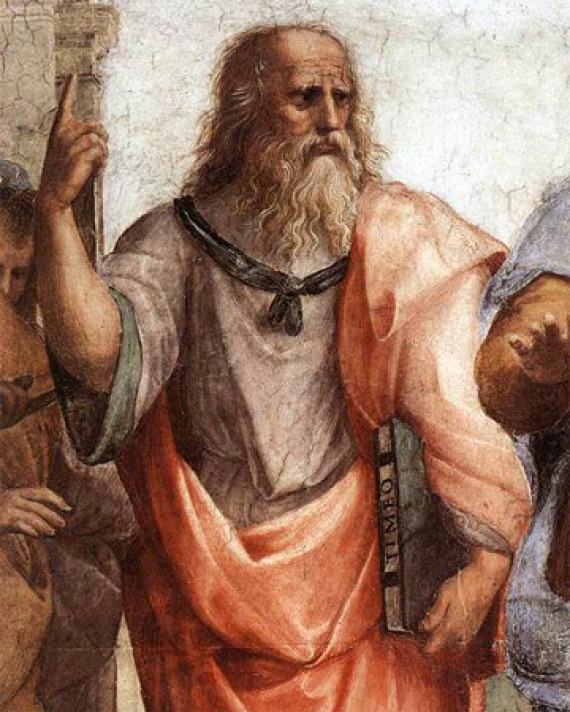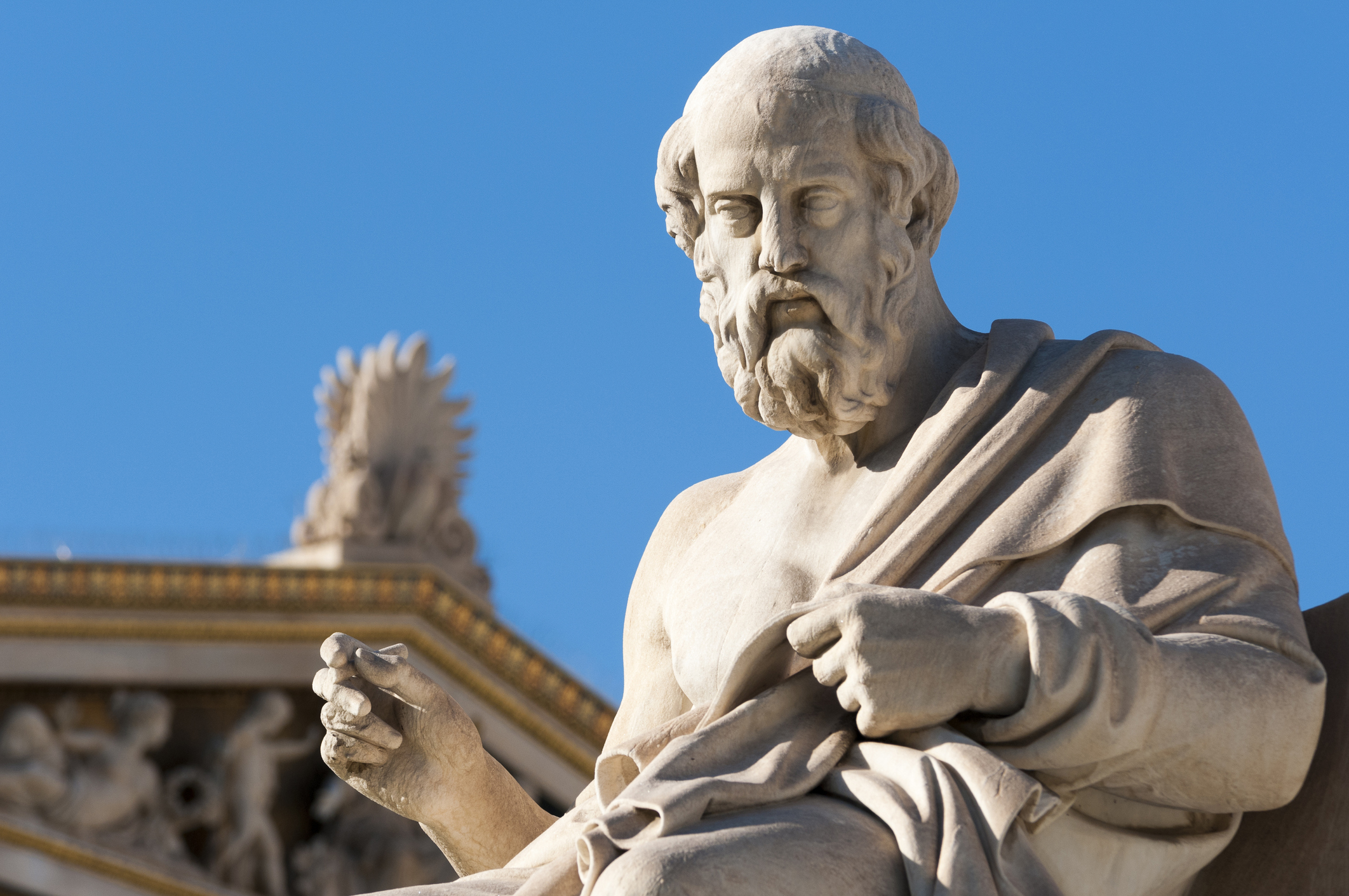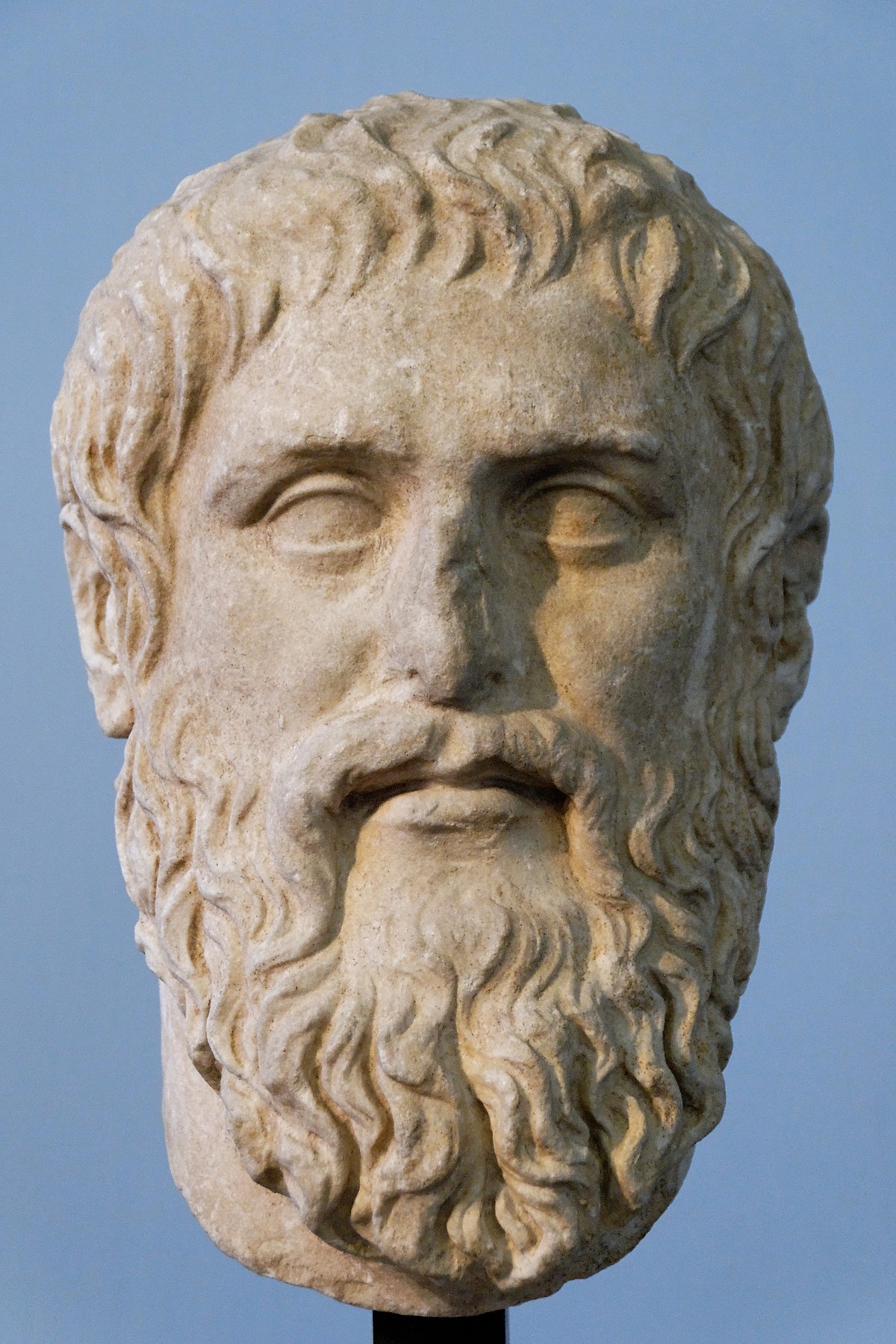Plato: The Philosopher Who Shaped Western Thought
Plato, a towering figure in the annals of philosophy, remains a foundational influence on Western thought. His writings, primarily in the form of dialogues, have left a lasting impression on a multitude of disciplines, including ethics, metaphysics, epistemology, and politics. Born circa 427 BCE in Athens, Plato was a student of Socrates and later became the teacher of Aristotle, forming a pivotal triad in the progression of ancient Greek philosophy.
The Life and Times of Plato
Plato was born into an aristocratic Athenian family during a time of political turmoil and transition. His early life was marked by the Peloponnesian War, a protracted conflict between Athens and Sparta, and the socio-political upheaval that followed Athens' defeat. This complex backdrop deeply influenced Plato's thought processes, as he grappled with questions concerning justice, governance, and human virtue.
As a young man, Plato was greatly influenced by his mentor Socrates, who championed the pursuit of knowledge and truth. Socrates' method of elenchus, or questioning, formed the backbone of the Socratic dialogues attributed to Plato. The execution of Socrates in 399 BCE, a result of his controversial ideas and method of engaging the youth, profoundly affected Plato, pushing him to flee Athens and embark on a period of travel and study.
Plato's Philosophical Contributions
Plato's philosophy is notable for its depth and breadth, encompassing overarching themes that pervade his dialogues. One of his most significant contributions is the Theory of Forms, or Ideas, which posits that beyond the physical world lies a realm of immutable and eternal forms that represent the true essence of all things. According to Plato, the forms are the only objects of genuine knowledge, while the material world is characterized by mere opinion.
This theory laid the groundwork for discussions on the nature of reality and knowledge. Plato's famed Allegory of the Cave, presented in "The Republic," illustrates his metaphysical vision. It depicts prisoners in a cave who perceive reality only through the shadows cast on the wall from objects they cannot see. The allegory underscores Plato's belief that philosophers, through reason and intellectual training, can perceive the true forms and lead others to higher understanding.
Plato's Political Philosophy
In addition to metaphysics and epistemology, Plato made significant contributions to political theory. In "The Republic," he outlines his vision of an ideal society ruled by philosopher-kings—individuals who possess both the wisdom to govern justly and the moral compass to prioritize the common good above personal interests. Plato was critical of democracy, which he believed to be flawed due to the ease with which unqualified individuals could ascend to power.
Plato's political philosophy is further demonstrated in works such as "The Laws" and "The Statesman." Though less comprehensive than "The Republic," these dialogues continue to explore his ideas on governance, law, and the role of education in cultivating virtue among citizens. Plato emphasized the importance of a structured and hierarchical society where the well-being of the whole supersedes individual desires.
Plato's Legacy and Influence
Plato's impact on Western philosophy and the broader intellectual tradition is immeasurable. His establishment of the Academy in Athens, one of the earliest known institutions of higher learning, marked a significant development in the history of education. The Academy not only disseminated Plato's teachings but also nurtured future philosophers, including his most renowned pupil, Aristotle.
Plato's works, ranging from ethics to metaphysics, continue to be scrutinized and debated by scholars and thinkers. His dialogues explore concepts such as beauty, justice, and love, often in the form of conversations featuring Socrates. By employing dialogue rather than treatise, Plato invites readers into a participatory exploration of ideas, encouraging them to engage with and question their own beliefs.
In modern times, Plato's influence extends beyond philosophy to disciplines such as political science, psychology, and literature. His conceptualization of ideal forms and his reflections on the human condition resonate through time, inspiring contemporary discourse and debate.
Plato's Dialogues: A Literary and Philosophical Legacy
One of the most distinctive features of Plato's work is his use of dialogues to express philosophical ideas. This format, largely unprecedented in his time, imbues his writings with a dynamic quality, as they depict lively exchanges between Socrates and various interlocutors. By choosing dialogue as his vehicle, Plato not only pays homage to the Socratic method but also enables readers to witness the unfolding of philosophical inquiry in a vivid, almost theatrical setting.
Key dialogues such as "The Republic," "Phaedrus," "Symposium," and "Timaeus" showcase Plato's philosophical rigor and literary artistry. In "The Republic," for instance, Plato uses the dialogue to explore justice and the nature of a just society, while in "Symposium," he delves into the concept of love through a series of speeches, each providing a different perspective on its nature and purpose. Through these conversations, Plato subtly guides the reader toward deeper understanding, demonstrating that philosophy is not just a solitary pursuit, but a communal and continuous quest for wisdom.
Plato and the Theory of Knowledge
Central to Plato's philosophy is his theory of knowledge, intimately tied to his Theory of Forms. Plato asserts that true knowledge is not derived from the physical world but from an intellectual understanding of the forms, which transcend sensory experience. This perspective is vividly illustrated in his dialogue "Meno," where he explores whether virtue can be taught and introduces the concept of anamnesis, or recollection.
In "Meno," Plato suggests that the human soul, being immortal, has already encountered the forms in a previous, pre-bodily existence. Thus, learning is an act of recollecting these eternal truths rather than acquiring new information. This notion elevates the role of the philosopher as a midwife of knowledge, aiding others in recollection through dialectical reasoning.
The epistemological inquiries in Plato's dialogues have had lasting implications in the realm of philosophy, laying the groundwork for subsequent debates on the nature and limits of human knowledge. His distinction between opinion and knowledge continues to inform modern discussions in epistemology, prompting questions about how we perceive reality and the methods through which we ascertain truth.
Plato's Ethical Philosophy
Ethics is a core component of Plato's thought, interwoven with his political and epistemological ideas. In dialogues such as "Gorgias" and "Crito," Plato examines moral philosophy and the virtues essential to a well-lived life. For Plato, the cultivation of virtue is paramount, intertwined with the pursuit of the good life and reflective of a harmonious soul.
In "Gorgias," Plato critiques the sophists—who prioritized rhetoric and persuasion over truth and morality—highlighting the tension between appearance and reality. He argues that genuine happiness arises from moral virtue and the alignment of one's life with the forms of truth and justice, rather than from external success or pleasure.
Plato extends his ethical reflections into political philosophy, positing a model of the ideal state rooted in virtue and rational governance. By envisioning a society led by philosopher-kings, Plato merges ethics with politics, advocating for leaders who exemplify justice and wisdom. This alignment foregrounds the belief that individual virtue and societal well-being are interconnected, each drawing strength from the other.
Plato's Enduring Influence on Education
Plato's thoughts on education are profound, woven throughout his philosophical narratives. He envisions education as an essential pathway to achieving personal and societal excellence. In his Academy, Plato intended to cultivate reason and intellectual virtue, asserting that true knowledge and understanding lead to just actions.
His emphasis on education as a lifelong endeavor marks a significant contribution to educational philosophy. Through the Allegory of the Cave, Plato symbolizes the journey from ignorance to enlightenment, emphasizing the transformative power of education. He believed that only through proper education could individuals achieve a comprehensive understanding of the forms, ultimately fostering a just society.
Plato's educational concepts have cast a long shadow over Western thought, influencing models of education that prioritize critical thinking, inquiry, and the development of moral character. His idea that education should nurture the soul and intellect, rather than merely imparting factual knowledge, remains a cornerstone of contemporary educational philosophy.
By infusing his dialogues with rich discussions on these subjects, Plato continues to inspire debates and explorations across a range of disciplines. His legacy, one of an insatiable quest for wisdom, justice, and the ideal society, endures as a guiding light in the ongoing dialogue about the human condition and the world we inhabit.
Platonic Love: An Exploration of Ideal Connections
In examining Plato's influence, one cannot overlook his exploration of love, particularly as articulated in the dialogue "Symposium." Here, Plato presents diverse viewpoints on the nature of love, culminating in Socrates' recounting of Diotima's Ladder of Love—a philosophical ascent from physical attraction to the contemplation of divine beauty itself. This progression underscores Plato’s belief in love as a form of motivation leading the soul toward higher realms of understanding and virtue.
The concept of "Platonic love," as it is known today, stems from this dialogue and signifies a deep, spiritual connection detached from physical desire. Plato challenges conventional notions of love by suggesting that the truest form of this emotion transcends the corporeal to become an intellectual and spiritual quest for truth. This idea has had a lasting impact, shaping cultural and philosophical interpretations of love and friendship across centuries.
Plato's Mythological and Intellectual Legacy
In addition to articulating systematic philosophical ideas, Plato also wove mythological narratives into his dialogues to elucidate complex concepts. Stories such as the Myth of Er, the Allegory of the Cave, and the myth of Atlantis serve both as pedagogical tools and as devices to explore metaphysical issues. The Myth of Er, found in "The Republic," addresses themes of justice and the afterlife, positing a moral structure that extends beyond human existence.
Plato's use of myth reflects a dual approach to philosophy—while grounded in rational inquiry, he also recognized the power of narrative to capture the imagination and convey deeper truths. His blend of reason and myth continues to resonate, offering a template for integrating storytelling into philosophical discourse.
Furthermore, Plato's dialogues laid the groundwork for philosophical schools of thought that followed. Neoplatonism, for instance, emerged as a prominent philosophical system in the third century CE, deeply influenced by Platonic metaphysics. This school further expanded on concepts such as the One, the Good, and the relationship between the material and ideal realms, leaving a profound mark on Christian theology and medieval philosophy.
Challenges and Critiques of Plato's Philosophy
While Plato's contributions to philosophy are indispensable, his ideas have also faced criticism and debate over the centuries. His Theory of Forms, for instance, has been scrutinized for its abstract nature and lack of empirical underpinning. Critics argue that the theory does not adequately account for the complexity and variability of the physical world.
Moreover, Plato's denouncement of democracy, as depicted in "The Republic," has been contentious, sparking extensive discussion among political scholars. His idealized vision of philosopher-kings and a structured hierarchy contrasts sharply with contemporary democratic ideals, which emphasize individual agency and equality.
Plato's perspectives on gender have also been debated. Although he proposed that women could serve as philosopher-rulers in his ideal society, he still adhered to certain conventional views on gender roles in other dialogues, prompting ongoing analysis and interpretation.
Despite these challenges, the continued examination and critique of Plato's ideas testify to their enduring relevance. His willingness to engage with complex questions and propose radical solutions continues to inspire philosophical inquiry and debate.
The Enduring Relevance of Plato
Today, Plato's philosophical inquiries remain integral to understanding not only classical thought but also modern intellectual traditions. His works provide a foundation for exploring ethical dilemmas, political systems, and metaphysical concepts in contemporary contexts. As modern societies grapple with issues of truth, justice, and governance, Plato's insights offer valuable perspectives for reflection and analysis.
Educational institutions worldwide continue to engage with Plato’s dialogues, recognizing their role in honing analytical and critical thinking skills. His emphasis on dialectical reasoning and the pursuit of knowledge aligns with current pedagogical approaches that prioritize dialogue and inquiry.
In the broader cultural sphere, Plato’s ideas permeate literature, art, and popular discourse, illustrating the timeless nature of his philosophical questions. His exploration of the human condition invites individuals to examine their own lives and societies, fostering a deeper understanding of what it means to seek truth and live virtuously.
In conclusion, Plato’s contribution to philosophy transcends his historical context, leaving an indelible mark on the development of Western thought. His dialogues encourage us to question, explore, and reflect, guiding us in our pursuit of wisdom and understanding in an ever-complex world. Through the ages, Plato endures not merely as a philosopher but as an essential interlocutor in the ongoing conversation about humanity and its place in the cosmos.













Comments